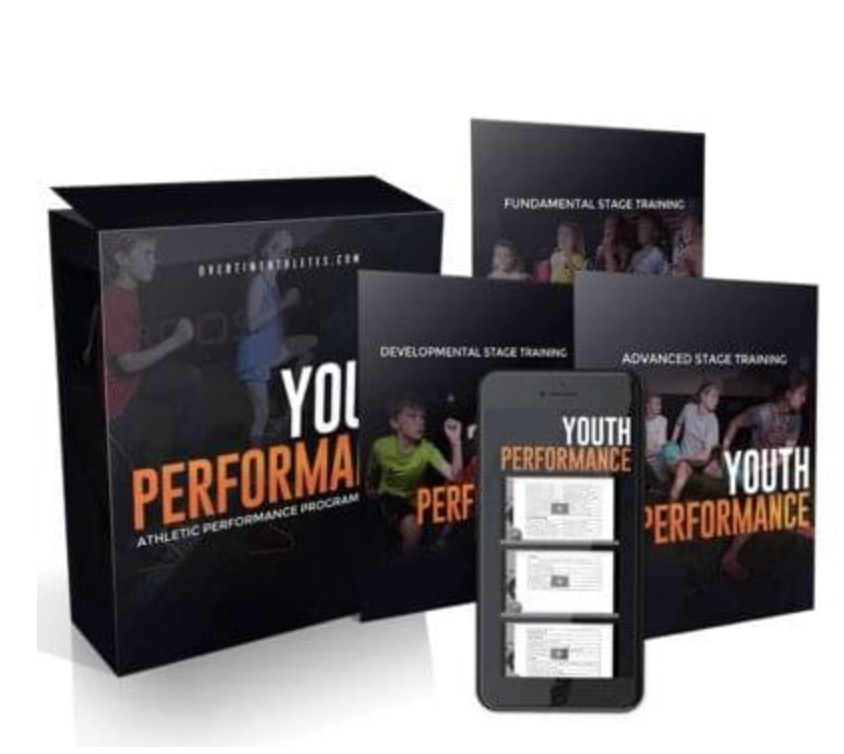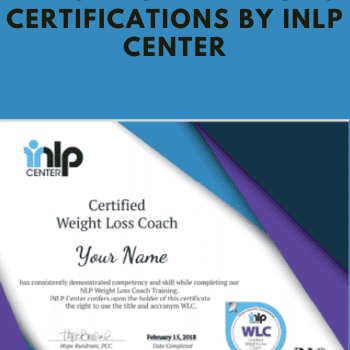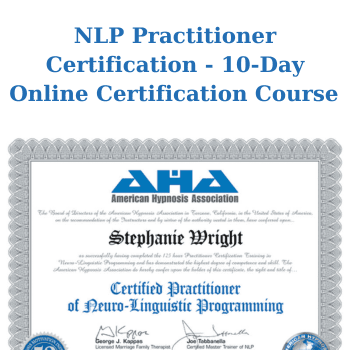Youth Performance Program – OTA
Original price was: $97.00.$29.00Current price is: $29.00.
If your child is playing Fortnite, watching TV, jogging around the block or lifting weights in a slow manner, your child has a high likelihood of becoming slow twitch dominant.
Transform your communication with the Youth Performance Program – OTA course, priced at just Original price was: $97.00.$29.00Current price is: $29.00. on NLPLibrary.com! As a dedicated hub for Neuro-linguistic programming, we offer an extensive library of downloadable courses in Neuro-Linguistic Programming. Achieve mastery with expert-led, self-paced learning and save over 80%. Explore the power of NLP today!
[wpsm_button color=”btncolor” size=”small” link=”https://www.overtimeathletes.co/youth-performancee9zu3mz1v1?sl=otamain” icon=”none” class=”” border_radius=”10%”]Sale Page[/wpsm_button] [wpsm_button color=”btncolor” size=”small” link=”https://archive.is/wip/Aiz7l” icon=”none” class=”” border_radius=”10%”]Archive[/wpsm_button]
n
nTHE 3 BIGGEST RESISTANCE TRAINING MISTAKES PARENTS MAKE WITH THEIR YOUNG ATHLETE
n
nIf You Hope to Help Your Young Athlete Reach Their Athletic Potential, Make Sure You Avoid These Mistakes
n
nDear fellow parent,
n
nWe all want the best for our young athletes.
n
nWe want to hand them the tools to succeed.
n
nWe want to see that smile of excitement after they play a great game.
n
nHowever, in my 10 plus years as a coach I’ve seen parents unknowingly make huge mistakes in trying to “help†their young athlete.
n
nMistakes that held their child back from reaching his or her full athletic potential.
n
nAnd sometimes ended in injury, embarrassment, and a loss of love for their sport.
n
nSee,
n
nDespite what you may think, or may have been told, ages 6-16 are critical formative years for athleticism.
n
nBut, most parents are not taking the steps to help their child capitalize on this crucial time correctly..
n
nThe decisions parents make for this young athlete during this time could be the difference between:
n
nThe athlete being fast and quick on their feet or their child being slow and heavy-footed
nTheir child being highly coordinated and agile or sloppy and awkward
nTheir young athlete being FILLED with passion for their sport, or loathing every game and practice they have to attend
n
nTo be clear, not every athlete can be the next Michael Jordan.
n
nHowever there are steps you can take to help your young athlete maximize his or her potential.
n
nAnd you can do this without being that parent who pressures their child so much that their child loses love for their sport, gets frustrated, and gives up.
n
nBelow, I’m going to share how you can help your young athlete reach their potential while avoiding the 3 BIG mistakes most parents make with their young athlete.
n
nBut first, I want to introduce myself…
n
nMy name is Chris Barnard.
n
nA little over a decade ago, I got my start on being a strength and conditioning coach when I was training for the NFL Combine in Miami. I was at a park in Miami doing some field work. After I finished some young kids approached me and asked if I could train them to be like me.
n
nI agreed.
n
nEvery day after I finished my field work, I took an hour and trained those kids.
n
nThat’s how my passion for helping young athletes achieve their goals was born.
n
nAnd since then, it’s only grown stronger with experiences like:
n
nAn entire swim team (besides two kids) receiving full rides to colleges,
nTurning an undersized high school kid into an NFL hopeful
nHaving NBA, NFL, and MLB players seek me out for training…
n
nPlus a bunch more experiences like this that opened my mind to what’s possible with sound strength and conditioning (which isn’t so common)
n
nAnd in my 10 plus years of coaching young athletes, I’ve noticed some HUGE mistakes parents make when trying to lead their young athlete towards unsuccess.
n
nMistakes that end up hurting the athlete’s development more than helping.
n
nTHREE MISTAKES PARENTS MAKE TRYING TO “HELP†THEIR YOUNG ATHLETE
n
nMistake #1:Â Being too Cautious
n
nI’ve met a lot of parents out there who are worried about their child getting injured,
n
nStunting their child’s growth,
n
nOr over-exhausting their child when it comes to training.
n
nThese are very real concerns.
n
nHowever, if your child wants to be a successful athlete, and you want to do everything you can to help your young athlete succeed, there’s something you have to realize:
n
nAges 6-16 are critical formative years for a young athlete.
n
nYour child develops most of their motor skills between these ages. These motor skills will serve as the foundation of his or her ability to perform certain tasks that are crucial to his or her sport.
n
nIf this window of opportunity closes before you are able to take advantage of it…
n
nYour child will not reach their full athletic potential.
n
nThis is simple developmental science.
n
nBetween ages 6 and 16, a child is undergoing locomotor, manipulative, stability, muscular, and coordination developments. The nervous system will accelerate these developments based on the stimulus the young athlete faces.
n
nIf he’s lounging on the couch 4 hours a day, the body will adjust to that.
n
nIf he’s following a well-structured program with agility, reaction, and stability training, the body will adjust to the stimulus he faces accordingly.
n
nIn other words…
n
nYour child’s body will adjust to the challenges it is presented with.
n
nIf your child is inactive, aside from a handful of practices or games, his body will reflect that as he grows older.
n
nIf your child is being presented with new challenges to adapt to, his performance will reflect that in later years.
n
nThe Fix:Â Â Begin The Proper Training Early
n
nMistake #2:Â Specializing too Early
n
nOn the other end of the spectrum, we have parents who try to specialize their child too early.
n
nThis brings to mind the story of a local baseball pitcher.
n
nAt age 14, he was the next best thing in the local area.
n
nBy age 16, he was burnt out, injured, and had lost passion for the game.
n
nWhy?
n
nSimply specializing too early.
n
nHis parents decided to have a strength coach build a specialized plan to increase their child’s arm strength.
n
nThe young man had pitching lessons multiple times a week.
n
nHe was also playing club ball and had tournaments nearly every weekend in the high school offseason.
n
nAll of the stress and repeated movement patterns built up in his body until he eventually needed surgery on his arm.
n
nThis happens more often than we’d like to admit.
n
nAnd it’s puzzling that it happens over and over again because the science shows that specialization can be debilitating for a young athlete.
n
nEspecially later in their career.
n
nFor example,
n
nIn a 2018 study on first round NBA First Round Draft Pick injury rates from 2008-2015, researchers found that draft picks who were single sport athletes in high school were nearly two times more likely to sustain a MAJOR injury than draft picks who were multi-sport athletes in high school.
n
nThat same study found that the Draft Picks who were single sport athletes in high school were more than THREE TIMES more likely to end their career early than Draft Picks who were multi sport athletes in high school.
n
nAnother study on the 2018 NFL Draft Class found that 88% of the picks were multi-sport athletes in high school.
n
nAnd finally, a 2016 study on MLB players found that early specialization in MLB players was associated with higher rates of arm and shoulder injuries AND fewer games played in the MLB.
n
nThe point?
n
nEarly specialization can put your child at a massive disadvantage
n
nIt could lead to injury…
n
nAnd worse:
n
nOverdoing it could lead to burnout and a loss of love for whatever sport they’re playing.
n
nThe Fix:Â Â Train for General Athleticism Until Age 18, THEN your young athlete can begin to specialize.
n
nMistake #3: Using “Traditional†Strength and Conditioning Knowledge to Train Your Child
n
nIf you’re like me, when it was time to ramp up for the season, you started by going for jogs around your block to “condition†yourself.
n
nAs you reached age 15. 16, you began to lift weights.
n
nAnd if you’re like me when I was young, you threw more weight on the bar than you had business lifting.
n
nYou stuck to the traditional lifts – squat, bench, and deadlift…
n
nAnd you didn’t care for much else.
n
nFlash forward to today, and you may be giving your child the same advice.
n
nThis advice could be taking away from their athletic ability.
n
nSee, every person has a different makeup of fast twitch and slow twitch muscle fibers.
n
nFast twitch fibers are responsible for producing explosive movements like a sprint, a jump, or a heavy one rep max.
n
nSlow twitch fibers play a big role in muscular endurance and long bouts of activity.
n
nObviously, most team sport athletes want more fast twitch fibers to gain an edge in competition.
n
nJump higher.
n
nSprint faster.
n
nOutmuscle the competition.
n
nThe thing is, what you do between ages 6-16 determine what type of muscle fibers you’re predisposed to.
n
nIf your child is playing Fortnite, watching TV, jogging around the block or lifting weights in a slow manner, your child has a high likelihood of becoming slow twitch dominant.
n
nThat’s fine if your child wants to be a marathon runner, or a cyclist.
n
nBut, if they have a tendency towards baseball, basketball, football, tennis, wrestling, or another team sport, they’ll want the majority of their muscle fibers to be fast twitch.
n
nThat means you’ll want to train them with FAST, EXPLOSIVE movement.
n
nThe Fix:Â Â Train FAST.
n
nTHE NEXT STEP IN TRAINING YOUR YOUNG ATHLETE
n
nWhether you’re guilty of making the mistakes I laid out above with your child or not…
n
nOne thing is clear.
n
nIf you want your child to excel, you need to get them started in training at an early age.
n
nAnd chances are, you’re not going to get your Certified Strength and Conditioning Certification to learn the best way to train your child.
n
nYou’re not going to go out and get a Degree in Exercise Science from a University.
n
nYou’re not going to spend 10 years experimenting with what works and what doesn’t.
n
nYou just don’t have the time.
n
nYou need an expert.
n
nBut,
n
nTHERE’S A SURPRISING LACK OF EXPERTS IN THIS AREA
n
nYour local personal trainer probably isn’t the best pick for your child’s athletic future.
n
nEven some highly effective Strength and Conditioning coaches DON’T have a system for developing young athletes.
n
nThey may cause more harm than good.
n
nOver the past few months, I’ve come to realize this.
n
nI’ve heard some real HORROR stories.
n
nAnd that’s why, for the first time. I’ve decided to make my own youth performance methods available to the general public.
n
nYou can find them inside of…
n
nTHE NEW OVERTIME ATHLETES
n
nYOUTH PERFORMANCE PROGRAM
n
nThe Overtime Athletes Youth Performance Program compiles the most effective training parameters for athletes ages 6-16, backed by in-field experience AND science.
n
nInside, you’ll receive:
n
n3 YOUTH TRAINING PROGRAMS EACH DEDICATED TO ONE STAGE OF YOUTH ATHLETIC DEVELOPMENT:
n
nProgram #1:Â Â Fundamental Stage Training Ages 6-9 (Motor Skills Training, Building Agility Balance, Coordination):
n
nThe focus of the Fundamental Stage Training Program is to introduce your young athlete to movements and force them to adapt.
n
nIn other words, this program will help your young athlete become proficient at general movement patterns like jumping, landing, sprinting, and changing directions.
n
nThis will help your young athlete avoid injury and have the ability to position themselves advantageously on the court or field.
n
nProgram #2:Â Â Developmental Stage Training Ages 9-12 (Motor Skills Training, Strength, Movement Efficiency, Agility, Foundational Movement Patterns)
n
nThe window between ages 9-12 is one of the most important developmental periods for young athletes.
n
nYoung athletes at this age are primed to acquire general sports skills that are cornerstones of their performance.
n
nTheir training should be designed to take advantage of this window.
n
nThe Developmental Stage Training Program will begin to teach your child how to train.
n
nMovements like squats, push-ups, pull-ups, and other movement patterns will be introduced while the movements from the previous program (sprints, jumping, changing direction) will be built upon.
n
nThis program will also introduce light resistance that your young athlete will move explosively to elicit the growth of fast twitch muscle fibers.
n
nProgram #3:Â Â Advancement Stage Training Program Ages 12-16 (Strength, Agility, Power, Explosiveness, and Encouraging General Athleticism)
n
nThe final program of the Youth Performance Trio is the Advancement Stage Training Program.
n
nIn this program, we’ll throw more novel stimulus at your young athlete in the form of more intense weight training, more advanced plyometrics, speed drills, and agility drills.
n
nThe emphasis, however, is on building strength to increase power and explosiveness.
n
nWe’ll do this with loaded foundational movements.
n
Build your expertise with the Youth Performance Program – OTA course at NLPLibrary.com! Get lifetime access to a comprehensive collection of NLP resources, designed to enhance your psychological and communication skills.
- Lifetime Access: Unrestricted, permanent access to your NLP courses.
- Cost-Effective Learning: Benefit from prices up to 80% lower than market rates.
- Guaranteed Security: Enjoy secure and reliable payment processing.
- Actionable NLP: Acquire practical techniques for immediate application.
- Instant Download: Start learning immediately after purchase.
- Anywhere Learning: Access your NLP content on any device, at your convenience.
Advance your NLP journey with NLPLibrary.com!
Only logged in customers who have purchased this product may leave a review.








Reviews
There are no reviews yet.